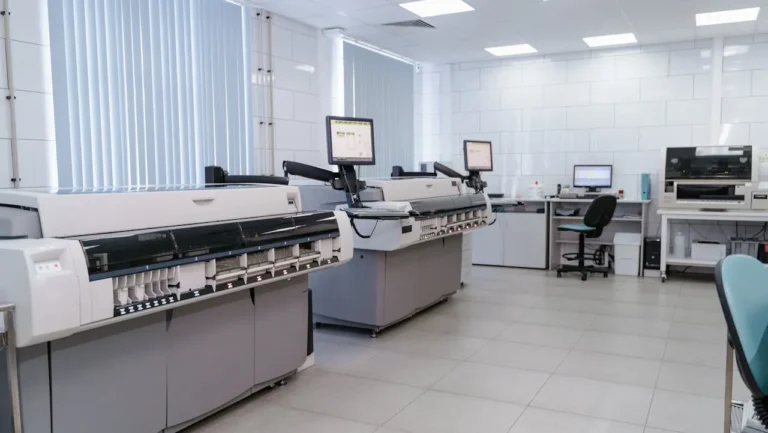
Airbus, CNES, and VAST Renew Commitment to Boost Vietnam’s Earth Observation Capabilities
Airbus Defence and Space, the French Space Agency (CNES), and the Vietnam Academy of Science and Technology (VAST) have officially reaffirmed their commitment to strengthen cooperation in the field of Earth observation (EO). This renewed partnership builds on the success of Vietnam’s pioneering satellite program, VNREDSat-1, marking a significant step forward in enhancing Vietnam’s sovereign space capabilities to address environmental and climate challenges.
The new Declaration of Intent (DoI) was signed in Hanoi during a high-profile ceremony attended by French President Emmanuel Macron and Vietnamese President Lương Cường, coinciding with President Macron’s official visit to Vietnam. This agreement underscores the mutual ambitions of the three organizations to advance the development and deployment of the next generation of Earth observation satellite systems. These systems are designed to support Vietnam’s urgent needs in climate change mitigation, disaster monitoring, and natural resource management, as well as to strengthen the country’s overall space infrastructure.
Building on VNREDSat-1’s Legacy
Vietnam’s space program entered a new era with the launch of VNREDSat-1 in 2013, a satellite developed and launched by Airbus Defence and Space in cooperation with VAST. The satellite was the first fully Vietnamese-designed Earth observation satellite and has since provided critical data for a variety of scientific and environmental applications. Notably, VNREDSat-1 has surpassed its initially planned operational lifespan, demonstrating robust performance and reliability under VAST’s management.
This success has set a solid foundation for ongoing collaboration, and the renewed DoI aims to deepen technical cooperation to ensure the continued optimal performance of VNREDSat-1. Furthermore, Airbus and VAST are committed to jointly exploring future satellite programs leveraging advanced technologies developed by CNES and Airbus, particularly within the framework of the CO3D constellation — a cutting-edge Earth observation constellation featuring optical stereo imaging capabilities designed for enhanced data precision and applications.
Strategic Goals of the Partnership

The collaboration between Airbus, CNES, and VAST is framed by strategic goals that align with Vietnam’s national priorities. Chief among these is supporting the country’s efforts to mitigate the impacts of climate change. Vietnam, with its extensive coastline and vulnerability to flooding, typhoons, and other natural disasters, stands to gain significantly from enhanced satellite-based Earth observation capabilities. Accurate, timely data from these satellites can improve disaster preparedness, enabling authorities to respond more effectively to natural calamities.
In addition to disaster management, Earth observation satellites play a crucial role in natural resource monitoring, helping track changes in land use, forest cover, water resources, and agricultural activity. This data is vital for sustainable development planning and ensuring that economic growth does not come at the expense of environmental degradation.
The DoI also highlights the importance of capacity building and knowledge transfer as part of the partnership. Training Vietnamese scientists, engineers, and technicians to operate, maintain, and develop satellite systems is a key objective. This focus on technology transfer ensures that Vietnam can gradually build a sovereign space industry, reducing dependence on external providers and fostering homegrown innovation in aerospace and related fields.
Statements from Key Figures
Stéphane Vesval, Senior Vice President Sales Space Systems at Airbus Defence and Space, emphasized the significance of the renewed cooperation:
“The renewed cooperation between Airbus, CNES, and VAST reflects a clear dedication to long-term partnerships that build sovereign capabilities and deliver meaningful societal value. We are proud to continue supporting Vietnam’s vision of becoming a leading spacefaring nation in Southeast Asia, and we look forward to enabling the future evolution of the VNREDSat programme.”
This statement highlights the long-term vision behind the collaboration, positioning Vietnam not just as a satellite data user but as a proactive space actor capable of independent operations and technological advancement.
CNES and VAST, for their part, have committed to expanding scientific and technical exchanges. This involves sharing Earth observation data, jointly developing new applications that leverage these data sets, and strengthening capacity-building programs to nurture local expertise in satellite technology, data analysis, and space science.
Broader Implications for Vietnam and the Region
Vietnam’s space ambitions, supported by partners like Airbus and CNES, reflect a growing trend in Southeast Asia towards expanding national space programs. Countries in the region are recognizing the strategic importance of space technology for national security, economic development, environmental management, and scientific progress.
The VNREDSat-1 program and its forthcoming successors symbolize Vietnam’s rising capabilities in this field. As the country continues to invest in satellite technologies, it will be better positioned to monitor its diverse ecosystems, manage urbanization challenges, and contribute to regional efforts addressing climate change.
Furthermore, the partnership with Airbus and CNES positions Vietnam within an international network of space technology leaders, facilitating access to cutting-edge developments and international collaboration opportunities.
Future Prospects: The Next Generation of VNREDSat
The Declaration of Intent opens the door for the joint development of the next generation of Earth observation satellites, potentially integrated into the CO3D constellation developed by CNES and Airbus. This advanced satellite constellation uses optical stereo imaging technology, which can capture high-resolution 3D images of the Earth’s surface. Such capability significantly improves data accuracy for applications such as urban planning, forestry management, agriculture, and disaster response.
By integrating future Vietnamese satellites into a broader constellation, Vietnam can benefit from enhanced revisit rates and data richness, supporting more timely and precise environmental monitoring.
Training and Technology Transfer
A key pillar of the agreement is a comprehensive training and technology transfer program. This initiative aims to equip Vietnamese scientists and engineers with the skills needed to design, operate, and analyze data from Earth observation satellites. It will involve hands-on training, workshops, and collaborative research projects, fostering a sustainable ecosystem of space expertise within Vietnam.
This approach not only supports immediate satellite operations but also nurtures the country’s broader ambitions to develop indigenous space technologies and participate in global space exploration efforts.
The renewed cooperation between Airbus Defence and Space, CNES, and VAST represents a significant milestone in Vietnam’s space journey. Building on the successful VNREDSat-1 satellite, this partnership advances Vietnam’s capabilities in Earth observation, enabling the country to better address environmental challenges, improve disaster response, and manage natural resources effectively.
With a shared vision and a clear roadmap for future satellite programs and capacity building, Airbus, CNES, and VAST are jointly contributing to Vietnam’s aspiration of becoming a prominent spacefaring nation in Southeast Asia. This collaboration promises not only technological advancements but also lasting societal and environmental benefits for Vietnam and the wider region.




